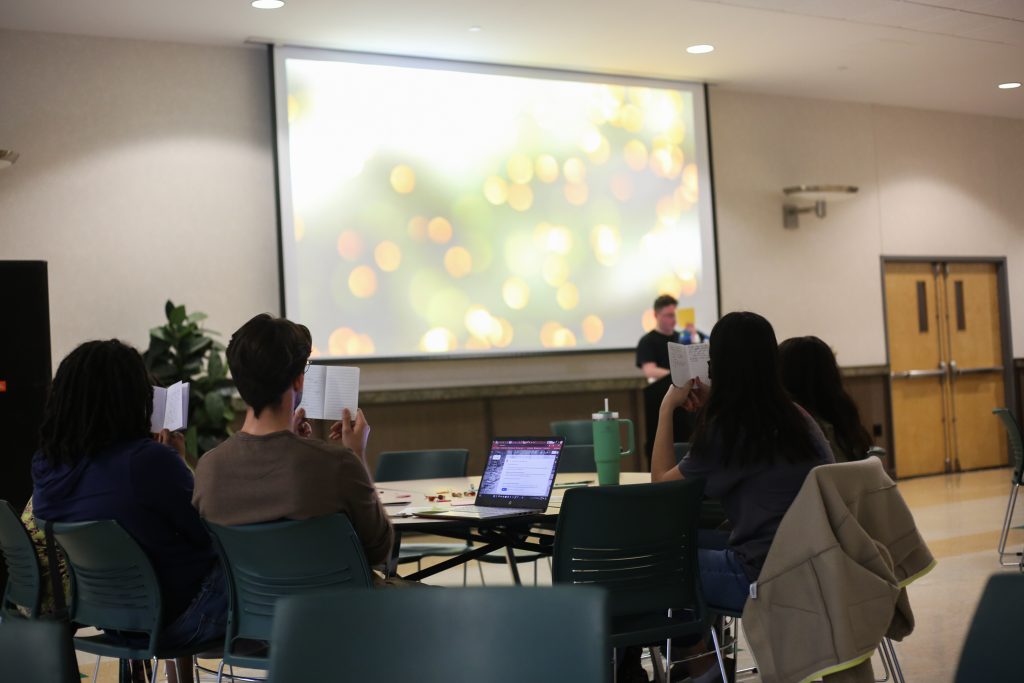
In collaboration with the Student Association (SA), Sonic Connections, an art-based program that helps college students experiencing mental health challenges, held an event encouraging participants to use music to provoke personal emotions on Thursday.
Event leaders guided attendees through journal-based music therapy in Old Union Hall from 5-7 p.m. Andrew Kirschner, Sonic Connections’ co-founder, led the event and small colored journals, pens, vibrant drawings and small stones were available for use. When participants sat down, they filled out a pre-event form, cataloging their thoughts, feelings and personal challenges. Kirschner explained that the event’s concept was based on music’s ability to draw out memories and emotions, helping listeners to capture thoughts and feelings while listening.
Several campus mental health resources tabled at the event’s first hour.
“Me and my co-founder, we’ve been working in collegiate mental health collectively a little over 10 years,” Kirschner said. “We’ve been to hundreds of schools running arts-based programming, and a couple of years ago we started Sonic Connections, because we are both musicians, and we wanted to start something that was music-based [and] also evidence-based. We pull from a lot of different areas of theory and practice, namely something called acceptance and commitment training and music therapy or the receptive side of music therapy. We are just musicians, and we are super passionate about using it to help heal others.”
Students were asked to close their eyes, immersing themselves in the music and following a minute of listening, they were told to write down thoughts that came to mind. Some of the musical prompts included questions about the participants’ values and personal choices. After writing down their responses, they participated in a brief discussion before continuing to the next prompt.
Luca Cassidy, the SA’s vice president for student success and a junior double-majoring in economics and sociology, said that Sonic Connections had initially reached out to him about bringing their program to campus, and Sydney Ferreira, the SA’s vice president for programming and a senior majoring in anthropology, encouraged the collaboration.
“Possibly, if the event goes well and we get good feedback, I see no reason why not to make this a yearly event,” Cassidy wrote in an email. “Especially since the event is not only a great way to help students in the moment, but help reintroduce students to the wonderful mental health resources we have on campus, like the departments and student clubs.”
He also credited his office’s chief of staff, Jayshawn Brown, a junior majoring in computer engineering, with the event’s creation.
The music played at the event was royalty-free under the Creative Commons license. Kirschner selected songs for different exercises, distinguishing between music that encouraged up-regulation — the activation of the nervous system — and down-regulation, the nervous system returning to a calm state.
“It’s a mindfulness event,” Kirschner said. “The goal is cultivating psychological flexibility among students. To essentially normalize the part of the college experience that brings up really challenging, difficult stuff. Not necessarily just to normalize that conversation but to help them understand that it’s kind of par for the course. It is totally normal to experience difficult things when being in an environment where you are pursuing something really important to you.”


